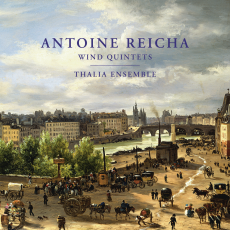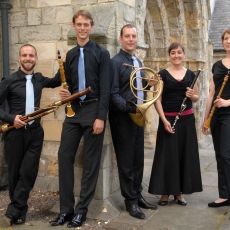Thalia Ensemble - Reicha: Wind Quintets - Gramophone
The name's Reicha, not Reich. Anton Reicha was born Antonín Rejcha in Prague, an exact contemporary of Beethoven, whom he befriended in Bonn; later he moved to Paris, where, as Antoine Reicha, he composed a series of 24 wind quintets, introduced in the lobby of the Théâtre Favart in 1817-19, performances that became the place to be seen in Parisian society. Not only that, but they were thought of as the finest works in the relatively new wind quintet genre.
They are all four-movement creations, reliant on the tonal and gestural language of Mozart and Haydn, with some of Beethoven's drive in the faster music. Reicha was a flautist and so knew the ins and outs of woodwind-writing, and managed to compose in a style that suited his players and made the most of the varied characters of the five instruments. Perhaps unsurprisingly, the flute often takes the lead, although all the instruments have the spotlight shone upon them, with some notably athletic passages for bassoon, and even the limited natural horn given more to do than simply provide harmonic anchoring. Minuets are in fact scherzos in all but name and each quintet opens with a slow introduction. The D minor Adagio darkens the tone by substituting cor anglais for oboe, invoking a sound world less akin to Haydn than to Mozart, with his penchant for dark wind colours.
The Thalia Ensemble (formed in Holland in 2011) recorded these quintets as part of their prize as winners of the 2013 York Early Music Festival Young Artists Competition. Most of the challenges of marshalling ancient instruments are surmounted, notwithstanding occasional trips in fast passages. These are infectious works, intended not to provoke but simply to delight, and in these elegantly shaped performances they do just that.

